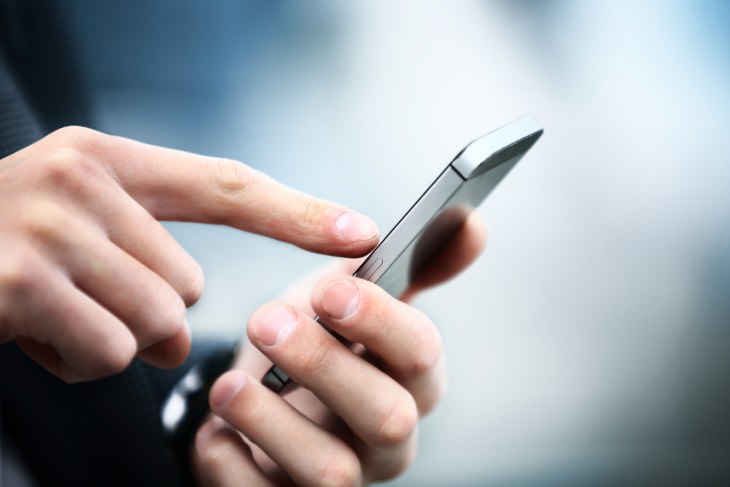

A common issue that can significantly hamper your smartphone's performance is a lack of available storage space. When your phone's memory becomes overly crowded, it can affect the device's processing speed and cause various functions to operate less efficiently. This can lead to an overall sluggish performance, making even the simplest tasks feel arduous and time-consuming.
To quickly alleviate this problem, it's advisable to start by decluttering your device. Review your apps, photos, videos, and files, and remove those that are infrequently used or no longer needed. Remember that digital clutter can accumulate over time just like physical clutter, so regular clean-ups can greatly improve your device's functionality.
However, deleting isn't the only option. If you're reluctant to permanently erase some items, consider offloading them to another device or uploading them to cloud storage. Many cloud services offer a substantial amount of free storage and can be a convenient way to preserve your files without burdening your phone's memory.
In addition, you can also manage your storage by adjusting your settings to automatically delete old messages, clear your internet cache, or reduce the quality of stored photos and videos. Remember, a well-maintained device not only operates better but also lasts longer, offering you a more enjoyable and efficient user experience.
Modern smartphones are designed to manage charging efficiently, but consistently charging your phone to 100% and leaving it plugged in for extended periods even after it's fully charged can still degrade the battery over time. This is because lithium-ion batteries, which are commonly used in smartphones, have a limited number of charge cycles.
Continuously charging your phone to its maximum capacity can increase the rate at which the battery loses its ability to hold a charge. To maintain optimal battery health, it's recommended to keep your battery level between 20% and 80%. Also, consider using a charger that supports adaptive charging, which can help manage charging speeds to prevent overcharging and extend battery life.

Many smartphone users habitually plug their charging cable into their device quickly and forcefully, unaware that this practice can inflict serious harm. Hasty and rough handling can misalign your phone's charging port, leading to significant charging and battery-related problems. Careful insertion of the charging cable, ensuring it aligns correctly and fits snugly without unnecessary force, can help preserve the integrity of the port and maintain your device's overall health and longevity. Proper handling can prevent a host of potential issues and prolong your device's lifespan.
Maintaining your smartphone's battery health is crucial for optimal performance and longevity. Samsung, one of the leading manufacturers of smartphones, has provided some valuable advice on this matter. According to them, for the best long-term results, it's recommended to keep your phone's battery charge level between 40 and 80 percent.
This guidance may come as a surprise to many, as it's a common misconception that letting your phone's battery drain completely before recharging is beneficial. This belief, often spread through word of mouth, is largely based on the behavior of older battery technologies. However, modern smartphones typically use lithium-ion batteries, which function differently.
Repeatedly draining your phone's battery to 0% can actually strain the battery and degrade its capacity over time. It's a practice that should be avoided whenever possible. Instead, frequent, partial charging within the suggested range helps to prolong battery health, ensuring that your device continues to operate efficiently and effectively for a longer period. Regularly monitoring and managing your battery usage can contribute significantly to extending your smartphone's lifespan.

Storing your cellphone in your front pocket is a common practice for many of us due to the convenience it offers. However, this habit might be inadvertently reducing your phone's lifespan. Among other risks, one significant issue is the potential damage caused by body heat.
Our bodies naturally maintain a temperature of 98.6º Fahrenheit, which is significantly higher than the optimal operating range for most cellphone batteries. According to Apple, their batteries perform best at temperatures between 62º and 72º Fahrenheit. This disparity can lead to the gradual depletion of your phone's battery life.
Moreover, the physical strain on phones in pockets is another concern. The constant pressure and bending, particularly when sitting or moving around, can stress the phone's frame and internal components. This can exacerbate wear and tear, leading to potential malfunctions over time.
In addition, pockets can often accumulate dust and lint which can clog up the phone's ports, potentially leading to connection and charging problems. To maintain the health of your phone, it's recommended to store it in a cool, clean place whenever possible and to avoid subjecting it to unnecessary physical stress.
Over time, dust, dirt, and debris can accumulate on your phone, particularly in the charging port, speaker grills, and other openings. This buildup can lead to poor connections, muffled audio, and even damage to the internal components of your phone. It's important to regularly clean your phone using appropriate methods to keep the ports and other openings free of debris.
To clean your phone, power it off and use a soft, lint-free cloth to gently wipe the exterior surfaces. Avoid using harsh chemicals or abrasive materials that could damage the screen or phone casing. For cleaning the charging port and other small openings, use a can of compressed air or a soft brush to carefully dislodge any dirt or debris. Regular cleaning can help extend the life of your phone and maintain its functionality.

Software updates play a pivotal role in the smooth functioning and security of your smartphone. Regularly updating your apps and operating system is an essential part of device maintenance, which many people tend to ignore. According to Norton, a renowned software company, neglecting these updates could leave your device significantly more susceptible to cyber threats such as hacking and malware.
Such threats can lead to severe consequences, including potential identity theft and data loss. Updates often come with patches that fix known security vulnerabilities, enhance app performance, and sometimes add new features. By ignoring these updates, you're not only hampering your apps from working at their full potential but also exposing your device and personal information to potential cyber-attacks.
Hence, it's crucial to regularly check for software updates and install them promptly, ensuring your smartphone operates efficiently and stays protected against potential threats.
A common misconception among smartphone users is that having multiple apps open drains battery life more quickly. However, the truth is slightly more complex. In reality, frequently closing and reopening apps can consume more power. Modern smartphones are designed to efficiently manage multiple open apps. They place background apps in a suspended state, reducing their power usage. Consequently, reopening these apps from scratch often requires more energy than simply resuming them from their suspended state. Balancing your app usage can therefore contribute to better battery management.
The security of your smartphone is critically tied to your online activities. If you habitually click on suspicious links or pop-up messages, you could be putting your device's lifespan and your personal data at risk. Such dubious links or pop-ups, often found in emails, messages, or websites, can be gateways for viruses and malware.
These malicious programs can significantly hinder your phone's performance, causing it to slow down, freeze, or even crash. More worryingly, they can also access and expose your private information, potentially leading to identity theft or financial loss. Some malware can even damage the phone's operating system, shortening its lifespan.
Therefore, it's essential to practice safe online habits. Avoid clicking on suspicious links, no matter how enticing they may appear. Regularly update your device's software, as updates often include security enhancements. Consider installing a reputable mobile security app for added protection. These measures can help ensure your smartphone's longevity and protect your personal data.
Related Articles:
7 iOS and 7 Android Mobile Data-Saving Methods
Guide: How to Prevent Your Cell Phone from Being Hacked